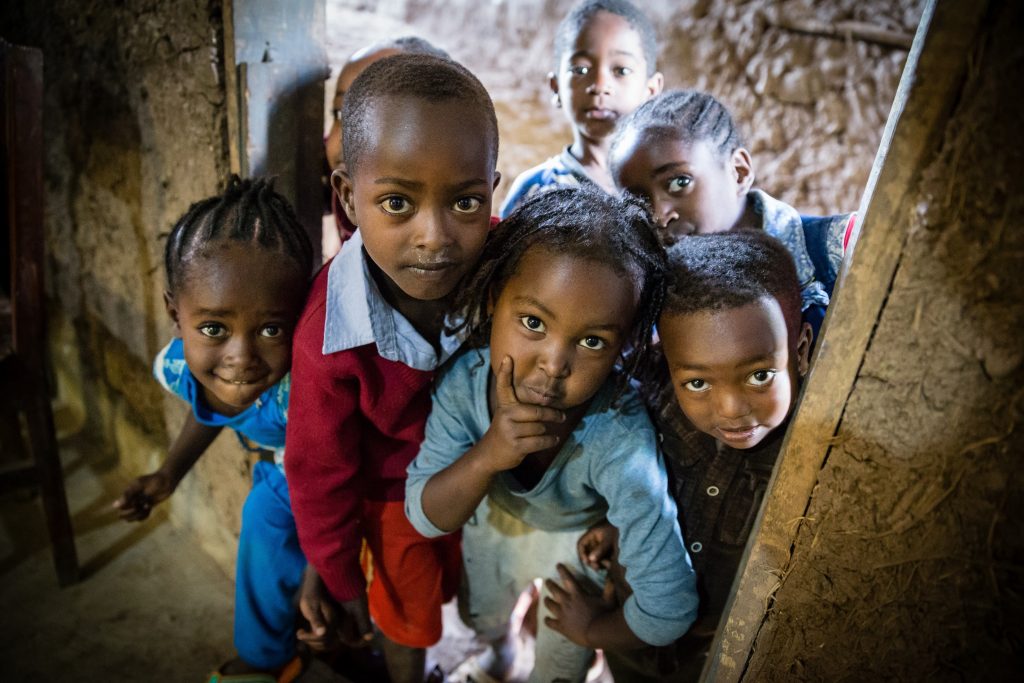
- Pediatric Praziquantel Consortium starts pivotal Phase III study for a pediatric praziquantel formulation in Kenya
- Neglected tropical disease schistosomiasis affects almost 240 million people worldwide and causes about 200,000 deaths per year
Merck, a leading science and technology company, today announced that, as part of its integrated Schistosomiasis Elimination Program, it is intensifying its Research & Development (R&D) efforts to develop and provide access to transformative and sustainable health solutions to fight schistosomiasis. As one of the flagship projects, the Pediatric Praziquantel Consortium program initiated the Phase III clinical trial in Kenya for a new formulation of praziquantel to treat schistosomiasis in pre-school age children (<6 years of age). This trial will also be conducted in Ivory Coast.
“As a leading company in the fight against schistosomiasis, Merck wants to impactfully contribute to the control and elimination of the disease through sustainable innovation development,” said Petra Wicklandt, Head of Corporate Affairs at Merck. “The Pediatric Praziquantel Consortium program has made remarkable progress. The start of the Phase III trial, which I witnessed by visiting the clinical site in Homa Bay in Kenya, is just one example of recent achievements.”
“The availability of a pediatric medication is essential to address the medical need of infected preschool-age children. Our investment today will secure our future generation,” said Dr. Maurice Odiere, Principal Investigator for the pediatric formulation Phase III trial and Principal Research Officer at the Kenya Medical Research Institute (KEMRI).
Through its Global Health Institute, Merck has established a portfolio of innovative and collaborative projects for new or adapted treatments, sensitive schistosomiasis diagnostics, technologies to control transmission, and educational approaches to strengthen health systems in low- and middle-income countries.
Together with partners, Merck is performing drug discovery activities for new treatments. Promising assets from Salvensis and the London School of Hygiene & Tropical Medicine have recently been obtained to identify potential new candidates to prevent and cure patients affected by schistosomiasis. In addition, Merck is collaborating with the Foundation for Innovative New Diagnostics (FIND) and the Bill & Melinda Gates Foundation (BMGF) to develop a Rapid Diagnostic Test as a new sensitive diagnostic to improve mapping and case detection for schistosomiasis. Furthermore, Merck is investing into innovative technologies for vector control and clean water to control transmission. The recently announced Eisai / Merck partnership addresses this topic.
Merck complements these R&D activities with its annual donation of up to 250 million praziquantel tablets, the standard-of-care treatment, to the World Health Organization (WHO). The neglected tropical disease schistosomiasis affects almost 240 million people worldwide, mainly in communities without access to safe drinking water and with poor sanitation, with an estimated number of deaths of about 200,000 per year.
About Schistosomiasis
Schistosomiasis (also known as bilharzia) is one of the most prevalent parasitic diseases in sub-Saharan Africa, caused by parasitic flatworms called schistosomes. It affects almost 240 million people, mainly in communities without access to safe drinking water and with poor sanitation, with an estimated number of deaths of about 200,000 per year. The parasites live within freshwater snails and infect humans by penetrating the skin. The disease can lead to chronic inflammation of the organs, which can be fatal but also to anaemia, stunted growth and impaired learning ability with devastating consequences for the lives of the young children.
About Merck
Merck, a leading science and technology company, operates across healthcare, life science and performance materials. Around 52,000 employees work to make a positive difference to millions of people’s lives every day by creating more joyful and sustainable ways to live. From advancing gene editing technologies and discovering unique ways to treat the most challenging diseases to enabling the intelligence of devices – Merck is everywhere. In 2018, Merck generated sales of € 14.8 billion in 66 countries.
Scientific exploration and responsible entrepreneurship have been key to Merck’s technological and scientific advances. This is how Merck has thrived since its founding in 1668. The founding family remains the majority owner of the publicly listed company. Merck holds the global rights to the Merck name and brand. The only exceptions are the United States and Canada, where the business sectors of Merck operate as EMD Serono in healthcare, MilliporeSigma in life science, and EMD Performance Materials.
